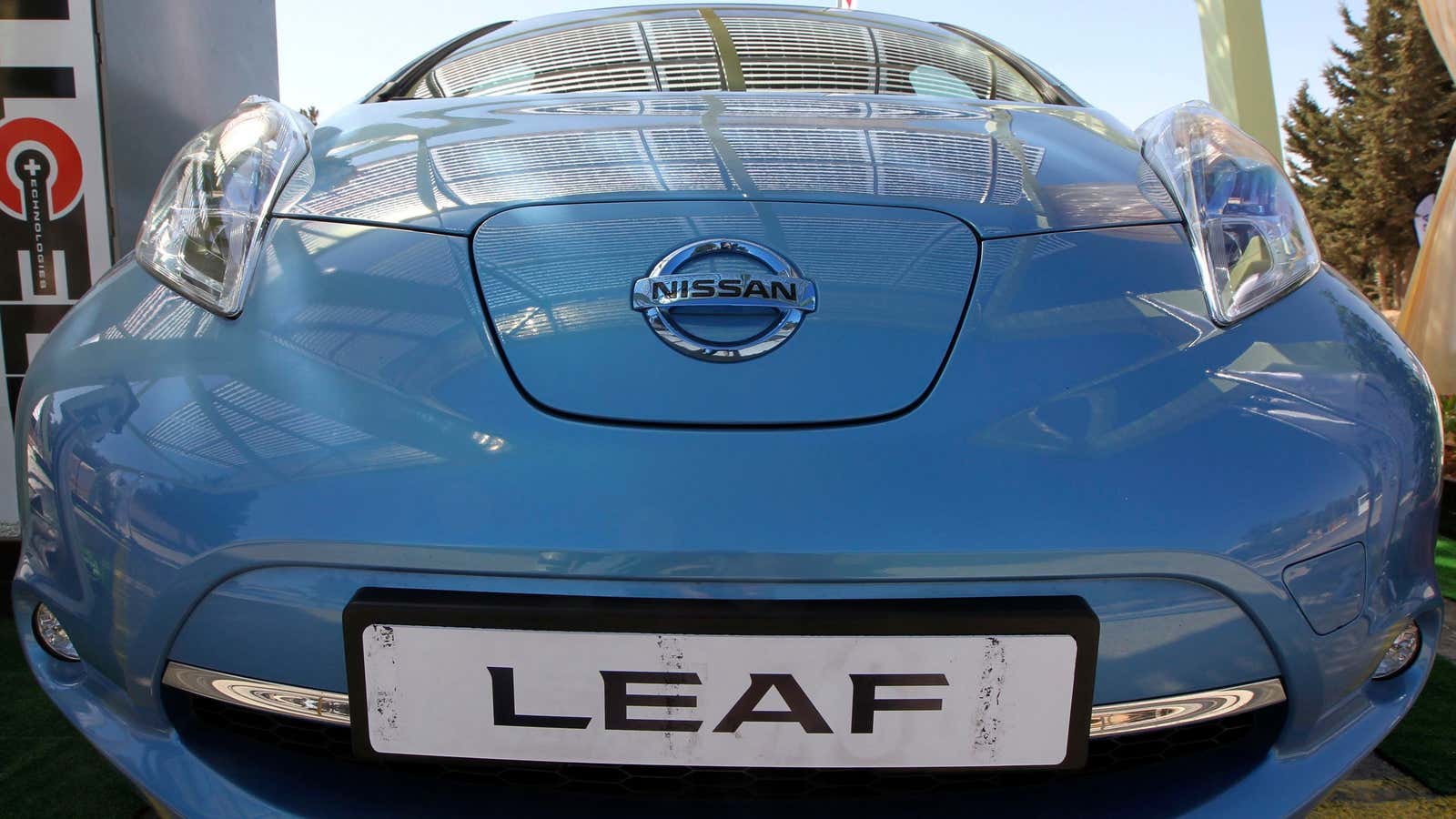The current crop of electric cars may be hobbled by their limited range and high price but they still suit the needs of nearly half of American drivers, according to a new survey by the Union of Concerned Scientists.
The group concluded that if a driver has a place to plug in an electric vehicle (EV), drives 60 miles a day or less and doesn’t need to haul around a bunch of people or gear, then a Nissan Leaf (Range: 75 miles/121 kilometers) or a Ford Focus (Range: 76 miles/122 kilometers) would meet their automotive needs.
“If everyone who could use an EV had one today, we would save 350 million barrels of oil a year,” states the report, noting that would halve US petroleum consumption. And going electric would save drivers cash annually, if not upfront. The driver of Nissan Leaf uses about $421 a year in electricity versus $1,500 in gasoline costs for a compact car with a fuel efficiency of nearly 29 miles per gallon, according to the study.
After all, the survey found that 95% of American drivers ferry four or fewer passengers and 79% don’t need to haul things like trailers or boats. All in all, 42% of drivers could–and if they care about saving cash and carbon over the long run–should buy or lease an electric car.
But only 1% currently do.
The study doesn’t delve into the reasons for the apparent lack of enthusiasm for going electric. But anecdotal evidence suggest a number of reasons for the slow adoption of battery-powered vehicles. First, electric cars have only been widely available for the past two years and only a small number of models is currently on the market. Then there’s the discrepancy between the numbers and the real-life reality of drivers’ habits and the real range of most electric cars.
While 69% of drivers may say they drive fewer than 60 miles a day–mainly to commute to work–all it takes is a few side trips to the mall or to shuttle the kids to soccer or piano lessons to exceed the daily range of most electric cars. And a car’s rated range is under optimum conditions–driving at a steady speed on even terrain in balmy weather. Start climbing hills or racing down the highway and watch the car’s range indicator plummet. Psychologically, it might be hard for many American consumers to make a big-ticket car purchase that could crimp their daily options when they’re used to the relatively limitless potential of gas cars.
There is, though, one segment of electric car buyers for whom those concerns are not an issue. As the report notes, the 2013 Tesla Motors Model S luxury sports sedan has a rated range of 265 miles.
